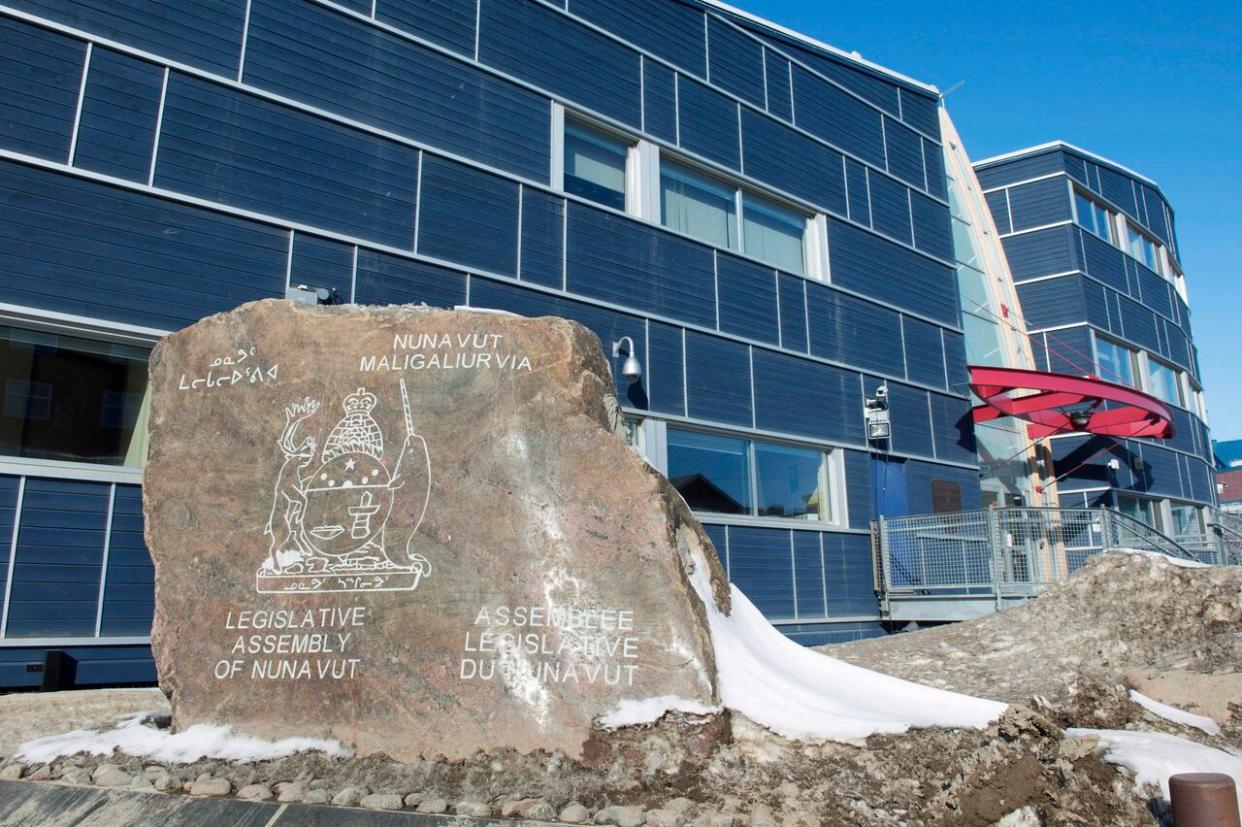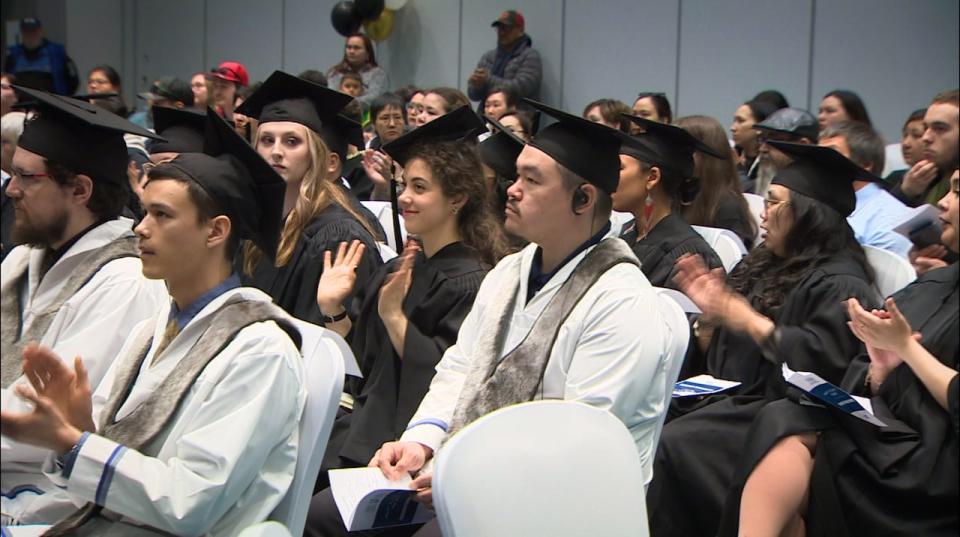50 remote Government of Nunavut employees could lose jobs by September

Roughly 50 employees of the Government of Nunavut who work outside of the territory could find themselves without a job at the end of the summer.
That's because a new remote work policy means employees will have to reapply to keep their job and beat out other candidates.
"Come the end of August, individuals need to be hired under the Remote Hiring Policy (RHP) to be working outside the territory full-time," said Kristie Cronin, deputy minister of human resources.
Those employees would not be transitioned into being an employee under the new policy because their positions will be advertised and a competitive hiring process will take place.

Kristie Cronin is the deputy minister of human resources in Nunavut. She says roughly 50 Government of Nunavut employees could lose their jobs by the end of the summer. (TJ Dhir/CBC)
The remote hiring policy is one of two policies that form the GN's remote work strategy. The other is telework, for which the guidelines are expected to be finalized by the end of June, according to Cronin.
Remote workers outside the territory have caused concern for Jason Rochon, president of the Nunavut Employees Union.
"We know that remote work doesn't boost local economic development," Rochon said. "We know it doesn't support Inuit-owned businesses or female-owned businesses, local businesses. We know it's not sustainable for our communities."
While Rochon says he is sympathetic to the GN's hiring struggles, he plans to bring up the issue when the union meets with the GN at the bargaining table this summer.
"We want to make sure that it's a priority that we start staffing positions and that we stop seeing all the casual extensions year after year," he said.

Jason Rochon is the president of the Nunavut Employees Union. He says GN employees who work remotely don't support local communities. (TJ Dhir/CBC)
Remote work strategy temporary
However, the government's remote work strategy is intended to be temporary.
Cronin said there's no way of predicting what the GN will need in the next few years, and whether is makes sense to be working outside the territory.
"In three years, our intent is to look at this list again and say, 'Do jobs need to come off? Do jobs need to be added?'" Cronin said.
"If we can find the resources within the territory, then that's our preferred state."
Any positions filled under the policy will be offered as term employment up to three years, according to the policy guidelines. People who wish to work at a GN workplace in the territory will be offered a permanent position, but will be ineligible to switch back to permanently working remotely.
GN struggling to attract talent
Hiring workers has been a long-standing challenge for the territorial government.
The main challenge, according to Rochon, is the lack of housing available to prospective employees.
"There's a lot of Inuit in this territory that would love to be able to work for the GN, but can't afford to and wouldn't have housing and be homeless," Rochon said.

The 2023 graduating class of Nunavut Arctic College. Nunavut Employees Union President Jason Rochon says the Government of Nunavut (GN) needs to do more to attract graduates from the college to want to become GN employees. (Carl-Eric Cardinal/CBC)
Rochon adds that the Nunavut 3,000 housing strategy, which aims to construct 3,000 new housing units across the territory by 2030, will help a little bit, but more needs to be done.
Cronin says Nunavut 3,000 would go a long way to attracting talent, but creating a private housing market with affordable housing is their ideal situation.
Rochon also says the GN could be taking a proactive approach in steering Nunavummiut to become future GN employees.
That includes steering Nunavut Arctic College graduates to GN positions.
"We need to be empowering people. We need to have some kind of mentorship program. We need to make sure that we're delivering a curriculum that's reflective of the workforce and the needs of our territory."
Cronin said that's exactly what they're doing.
"There's a lot of work going on behind the scenes to hopefully put us in a better position," she said. "We know that students are an untapped resource and we have a lot of great work going on," Cronin said.


